Trainee Counsellor Support
As a counsellor who provides clinical supervision for trainee counsellors, clinical supervision is an essential aspect of their professional development and training. Clinical supervision is a collaborative process between me as a qualified and experienced supervisor and the trainee counsellor. The primary goal of clinical supervision for trainee counsellors is to ensure that they develop the necessary skills and knowledge to become competent and effective counsellors.
During clinical supervision, trainee counsellors can present their cases, discuss ethical issues, and reflect on their practice, allowing me as a supervisor to identify areas for improvement and provide feedback on their clinical skills, knowledge, and ethical practice. Clinical supervision provides trainee counsellors with a safe space to explore their emotions, develop their self-awareness, and understand their reactions to clients.
Clinical supervision for trainee counsellors is a mandatory requirement for their training and professional accreditation. The frequency and duration of clinical supervision depends on the trainee counsellor’s level of experience, competence, and professional standards but it is usually an hour of supervision for every 8 hours of clinical case work. Clinical supervision can take different forms, including individual and group supervision, live or recorded sessions, and online or face-to-face meetings.
Clinical supervision provides several benefits for trainee counsellors, including developing their clinical skills and knowledge, increasing their self-awareness and reflective practice, and supporting them in their personal and professional growth. Clinical supervision also helps trainee counsellors manage ethical dilemmas, address countertransference issues, and maintain a healthy therapeutic relationship with clients.
In conclusion, as a counsellor who provides clinical supervision for trainee counsellors, clinical supervision is an essential aspect of their professional development and training. Clinical supervision provides trainee counsellors with a safe space to explore their emotions, develop their self-awareness, and understand their reactions to clients.
It is a mandatory requirement for their training and professional accreditation and provides several benefits, including developing their clinical skills and knowledge, increasing their self-awareness and reflective practice, and supporting their personal and professional growth. Clinical supervision also helps trainee counsellors manage ethical dilemmas and maintain a healthy therapeutic relationship with clients.
About the author of the service

Jason Dudley MBACP
Registered Counsellor and clinical supervisor
I have over 25 years experience working in the helping professions that includes the charity sector, NHS, eduaction and health.
More infoAppointment for a consultation
£30
/ Session price
This collaborative process focuses on ensuring safe, ethical, and effective counselling practices. It's an essential part of professional development, helping trainee counsellors refine their skills and maintain the highest standards.
Buy nowOther services
Individual Counselling
Individual counselling is a type of therapy that I offer to clients who seek support in improving their mental health and emotional well-being.
More infoCognitive Behavioural Therapy
As a counsellor, I have used cognitive-behavioural therapy (CBT) to help many individuals overcome negative thought patterns and behaviours.
More infoClinical Supervision
As a counsellor who provides clinical supervision, clinical supervision is a collaborative process between me as a qualified and experienced supervisor.
More infoLatest articles

Understanding Behavioural Activation
Behavioural Activation (BA) is a type of psychotherapy that focuses on increasing engagement in positive and rewarding activities in order to alleviate symptoms of depression

Understanding NAT’s
Negative automatic thoughts (NATs) are negative thoughts that arise spontaneously in response to everyday events. They are automatic, in that they happen quickly and without

Understanding Binge Eating Disorder (BED)
Binge eating disorder (BED) is a serious and common eating disorder that is characterised by recurrent episodes of eating large amounts of food in a
Contact Me
If you would like to have a quick chat, I am usually available and would be happy to hear from you. However, if you find that sending an email message would be more convenient for you, please feel free to do so. Rest assured that I will get back to you as soon as possible and give you the attention that you deserve.
Thank you for your interest and I look forward to speaking with you!
Working time
- Monday - Friday:5 pm - 8 pm
- Saturday8 am - 11 am
- Sundayclosed


